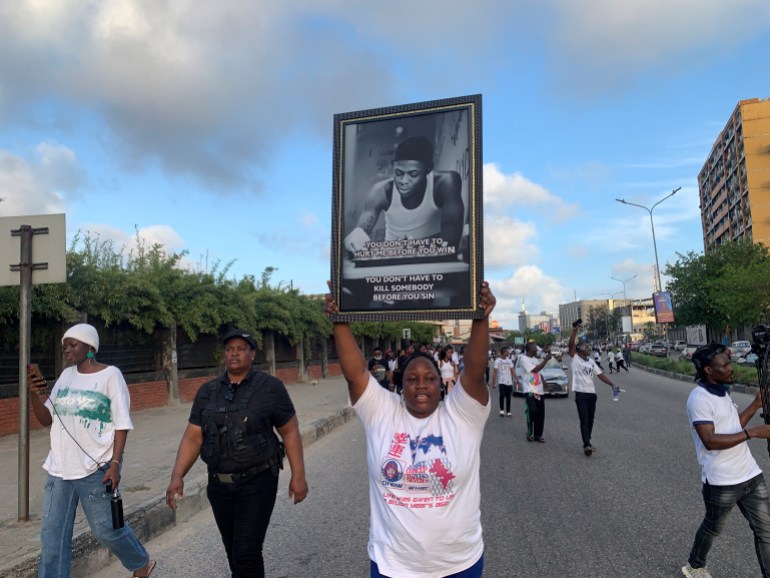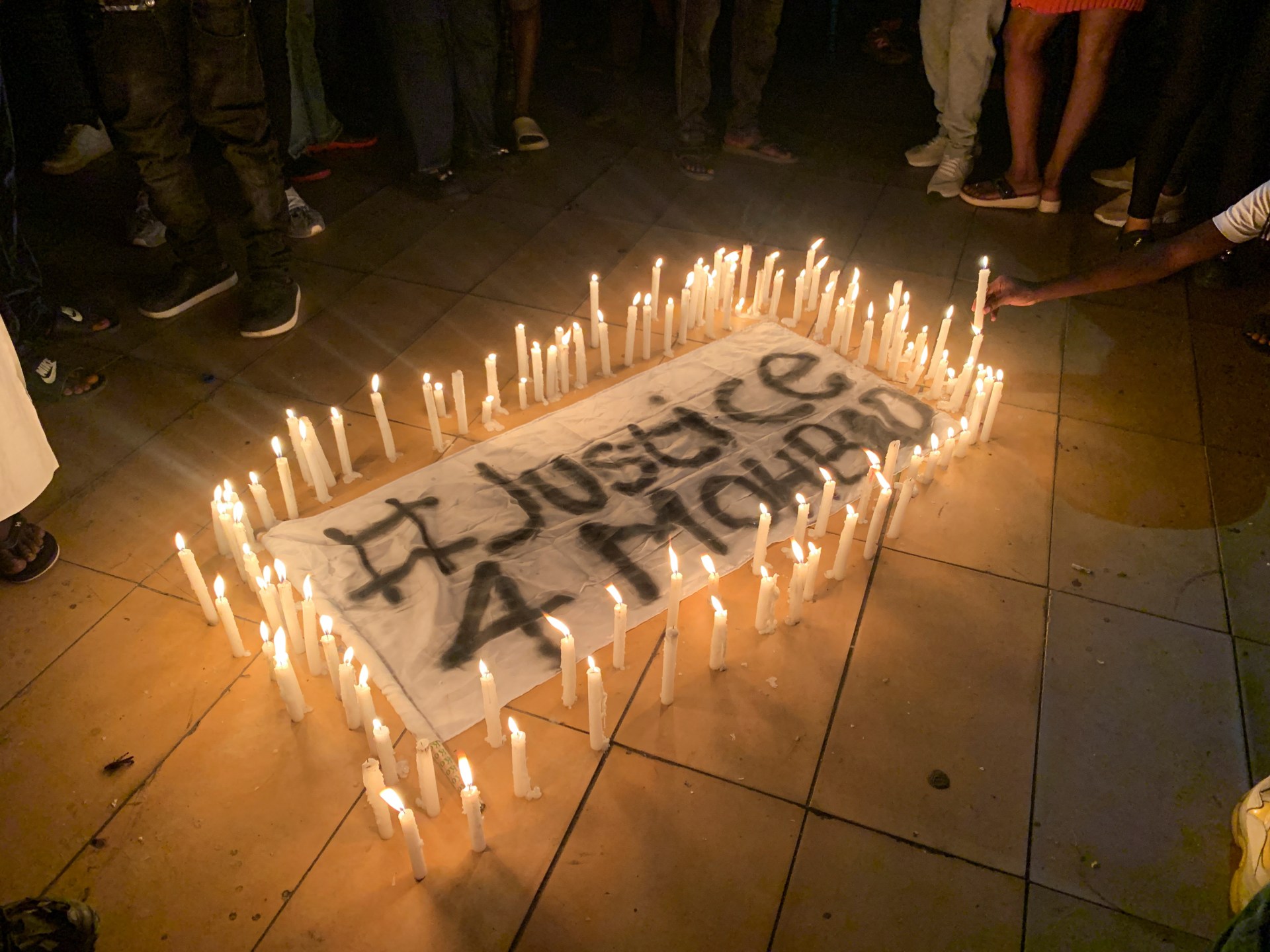Lagos, Nigeria – On Thursday evening, hundreds of young Nigerians in white shirts converged in Lagos for a candlelight procession in honour of a Nigerian musician who died mysteriously on September 12.
Many of those who turned out were still dazed by the demise of the rising Afrobeats star Ilerioluwa Aloba aka Mohbad which has ignited a debate about the music industry.
News of the 27-year-old’s death in a clinic after treatment for an ear infection, filtered in last Tuesday. Within hours of his death, the six-foot artist was buried by members of his family with videos on social media showing his neck bent unnaturally to fit into the coffin. His wife and infant son were not present at the funeral.
That, and footage of attacks reportedly sponsored by fellow musician Naira Marley whose record label Marlian Records the late artist was signed to until last year, triggered nationwide outrage.
Consequently, there have been a number of protests, as well as a procession of youths on Thursday singing his name and calling for an investigation while marching to a tribute concert with many musicians in attendance.
Some of the attendees hoisted his portrait above their heads. Others wore his face on their shirts.
“I don’t know him personally but I feel really sad and heartbroken,” said 25-year-old Temitope Keji who braved the Lagos traffic to join the concert. “If the case had come out more clearly, maybe Nigerians would have fought for him the way they are supporting him now, Maybe he wouldn’t be dead now.”
The police have been slow to act but exhumed his body for an autopsy on Thursday. Meanwhile, Lagos state governor Babajide Sanwoolu has joined the fray, calling for a thorough investigation and revealing that he had invited Nigeria’s secret police to help.
‘A sense of closure’
Some of the videos showed Aloba fleeing from assailants, beaten or bleeding from open wounds. Fans have accused Naira Marley, a British Nigerian arrested for cyber-fraud in Nigeria in 2019 and multiple times for gang violence in the United Kingdom, of being behind the ordeal.
Aloba had left the label in 2022, citing a number of grievances, including unpaid royalties in his three-year stint at the label.
Aloba’s baritone and moving lyrics had defined him as a unique artist.
Since his death, his music has dominated the airwaves. His songs also currently occupy the top three places on the Apple Music Top 100 in Nigeria and on Billboard’s trending songs global chart.
Some of his fans are yet to come to terms with his death.
Keji, who became a fan after falling in love with his addictive, KPK, song in 2020, sat on the floor and cried after a friend sent her a video of his lifeless body in the back of a car.
She was saddened that Aloba who was also known as Imole, which means “light” in Yoruba, was not alive to witness the tributes to him and his music’s chart-topping popularity. “He has been singing about peace and light,” she said. “I pray in my heart that his spirit be at peace wherever he is out there.”
Like her, Ameen Animashaun, a 23-year-old writer who told Al Jazeera he is obsessed with his music said he is still struggling to speak about him in the past tense.
“Mohbad was a true artist. He was brilliant in every sense of the word and I hope the autopsy sheds more light on the actual cause of his death,” he said. “I think the autopsy report will give me a sense of closure.”

An industry habit
The evidence of his mistreatment has stoked a conversation about how local labels treat young artists who, desperate for their big break, become entrapped in parasitic contracts and bullied when they try to exit the arrangement.
For years, the Nigerian music industry has been largely funded through proceeds of illicit enterprises, according to Foza Fawehinmi, a creative economy lawyer at entertainment consultancy, Zaeda Oracle. And financiers have frequently become combative, resorting to criminal tactics to recoup music investments.
“Institutional funding is still trickling in; it’s not serving up to 20 percent of the industry as it is,” she told Al Jazeera. “Some of the industry is still heavily reliant on this unscrupulous source of funding. So our responsibility is to ensure that structures are put in place so that institutional funds can come in and flush out those systems of bullying.”
Fawehinmi also urged young artists to scrutinise contracts before signing.
The artist’s death has exposed a deep rot in the sector said Lanre Lawal, an industry veteran and founder of The Bail Music Company, a Lagos-based music consultancy.
“Some people have spoken up about it in the past but nobody listens,” he said. “This is opening the people’s eyes to what is going on in the industry and our society … people make noise and then go back to default, I hope we are able to find a way to sanitise the space as should be.
